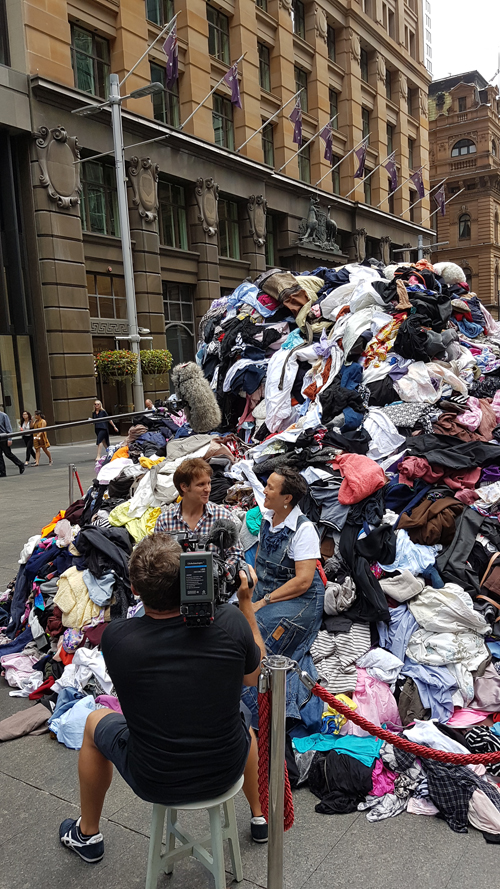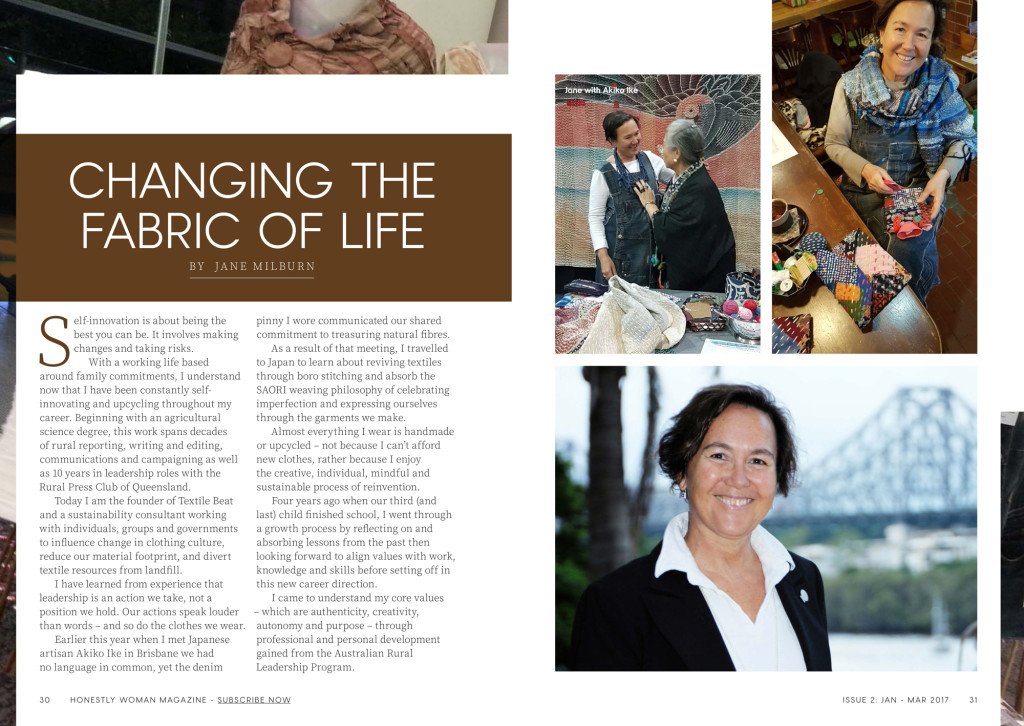Start where you are, use what you have, do what you can. Using observation and instinct, Jane Milburn and Textile Beat join the dots and explore a science-based narrative about clothing.
Clothes do for us on the outside what food does on the inside – they nourish and warm our body and soul. In the same way that conscious eaters are sourcing fresh whole food and returning to the kitchen, conscious dressers are seeking to know more about the provenance and ethics of clothing and curious about how it is made. Every day we eat and we dress to survive and thrive, and it is not just the style that matters, substance does too.
Fast and processed industrial food has had a dramatic impact on our health in recent years and similarly there has been transformational shift to industrial factory-made clothing, the social and environmental impacts of which we are only now coming to understand.
The Food and Agriculture Organisation reports that at least one-third of food produced is never eaten and creative solutions are emerging to divert and reduce that waste. In the same way, there is growing evidence a third of clothing is wasted, with much potential to upcycle and redeploy it. My purposeful work is bringing awareness to these and other material issues.
More than 90 percent of garments sold in Australia are now made overseas, mostly in Asian factories. Most people buy off-the-rack or online, with very few making anything for themselves to wear. As a natural-fibre champion, I am troubled that synthetic fibres made from petroleum now dominate the clothing market at a time when research shows these plastic clothes are shedding millions of microplastic particles into the ecosystem with every wash.
To be sustainable, we can borrow from Michael Pollan’s guide to eating and say ‘dressing is an agricultural act’ because unless we are wearing natural fibres, we are wearing synthetics derived from petroleum.
I created Textile Beat in 2013 based on social-enterprise principles and began this journey into creativity, empowerment, thrift, sustainability, ecological health and wellbeing – woven with threads of childhood, education, professional expertise, networks and nature.
Textile Beat is a platform to discuss ethical issues around clothing culture which include: burgeoning consumption; changing fibres; waste and pollution; modern-day slavery; and a loss of understanding and knowledge about how clothes are made.
In 2014 I undertook an action research project called Sew it Again which won the social media category of the Queensland 2015 Excellence in Rural Journalism Awards, with the judges commenting it engaged the community, had a call to action, was transformative, and actually ‘made a difference in the world’.
In 2015 I developed the Slow Clothing Manifesto as a summary of 10 ways (think, natural, quality, local, few, care, make, adapt, revive, salvage) to thrive in a material world and began presenting workshops and talks with teachers, local councils and community groups.
During 2016 I implemented The Slow Clothing Project to share stories about Australians choosing to make some of their own clothing, partnered with Brisbane City Council to create ReviveBNE at South Bank as a pop-up preloved fashion event for young people and presented the figures behind fast-fashion consumption trends at a textile recovery workshop in Sydney.
Continuing to be open to change and take risks, exciting opportunities are emerging as awareness grows about the ecological impact of our clothing choices. The War on Waste series is coming to ABCTV Australia soon, World Science Festival is coming to Brisbane with Microplastics: A macro problem, and slow clothing emerges as a philosophy – a way of thinking about and choosing clothes to ensure they bring meaning, value and joy to every day.
This article first appeared in Honestly Woman magazine.

